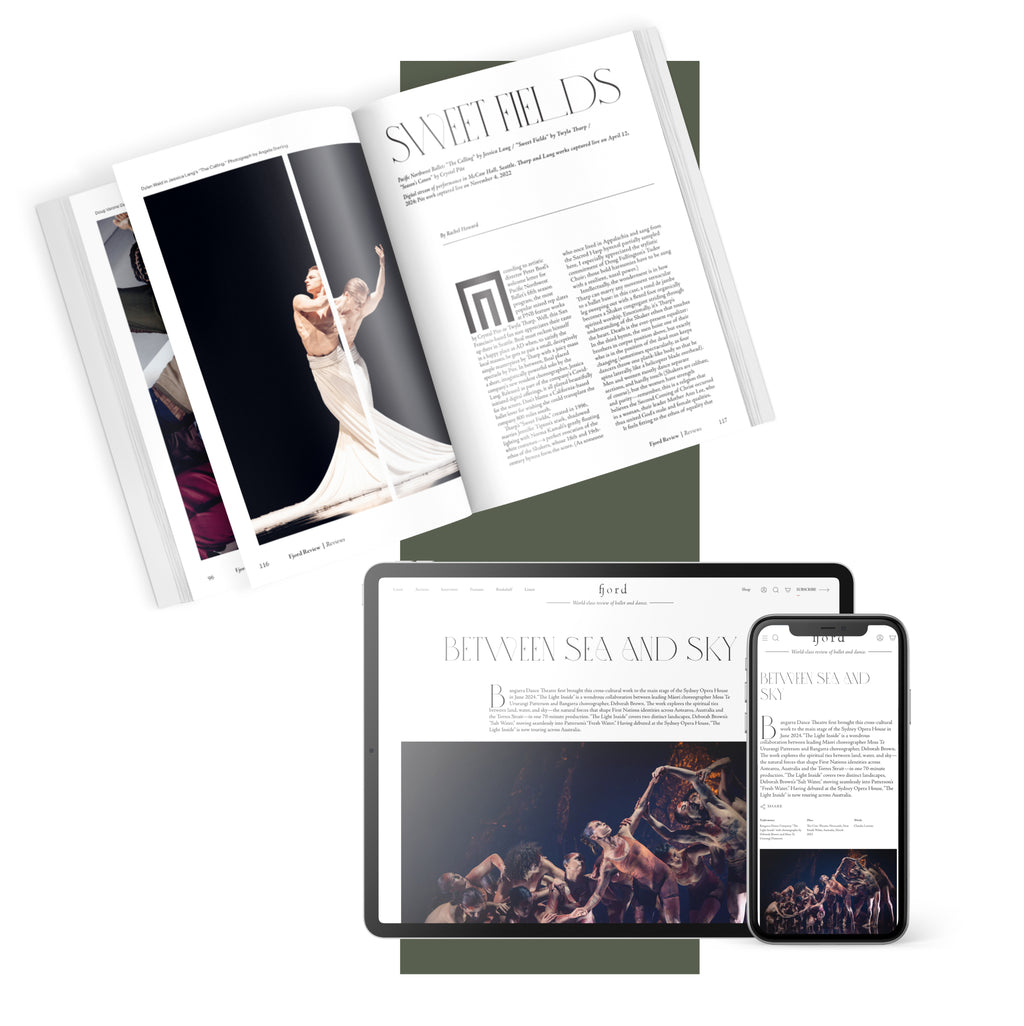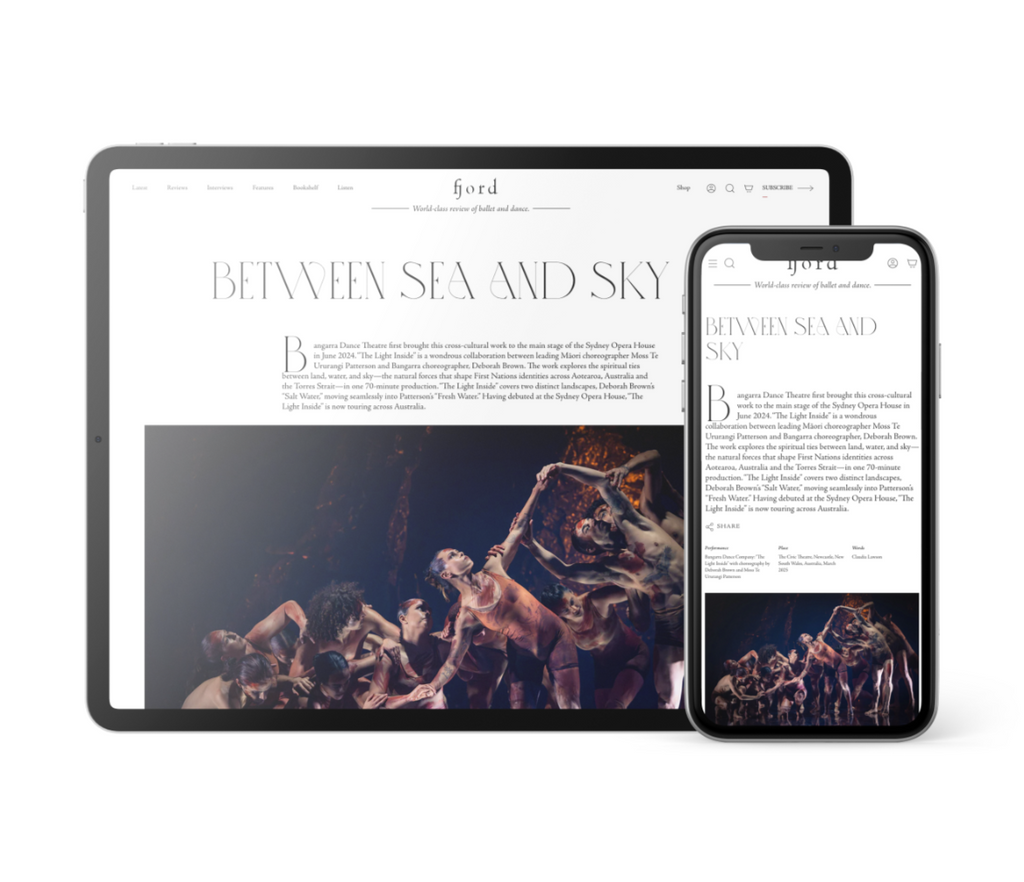Mishima’s Muse
Japan Society’s Yukio Mishima centennial series culminated with “Mishima’s Muse – Noh Theater,” which was actually three programs of traditional noh works that Japanese author Yukio Mishima adapted into modern plays.
Continue Reading
World-class review of ballet and dance.
The annual Dancing the Gods Festival of Indian Dance celebrated its fourteenth and final year with a generous finale May 16-18. This final event extended for three evenings instead of the usual two. Each performance featured a highly accomplished artist of a different classical Indian dance form: Mythili Prakash (Bharatanatyam), Parul Shah (Kathak) and Bijayini Satpathy (Odissi)─all programmed as an homage to Rajika Puri, the festival’s founder and curator. Puri, an acclaimed dance storyteller (herself an exponent of Bharatanatyam and Odissi), has curated each year’s festival with visionary leadership and a fierce dedication to artistic excellence. Over the years, Puri scouted out talent in India with an eye for presentation at the festival─helping to build many performers’ careers. She is also known for her onstage pre-performance lecture/demonstrations, through which she expounds upon some aspect of classical Indian dance. I am included among those who received an education through Puri’s information-filled presentations. The festival was conceived in collaboration with the World Music Institute, and for its last two years, Asia Society has joined as a co-presenter providing its elegant venue for the performances.
Performance
Place
Words



“Uncommonly intelligent, substantial coverage.”
Your weekly source for world-class dance reviews, interviews, articles, and more.
Already a paid subscriber? Login

Japan Society’s Yukio Mishima centennial series culminated with “Mishima’s Muse – Noh Theater,” which was actually three programs of traditional noh works that Japanese author Yukio Mishima adapted into modern plays.
Continue ReadingThroughout the year, our critics attend hundreds of dance performances, whether onsite, outdoors, or on the proscenium stage, around the world.
Continue ReadingOn December 11th, the Alvin Ailey American Dance Theater presented two premieres and two dances that had premiered just a week prior.
Continue ReadingThe “Contrastes” evening is one of the Paris Opéra Ballet’s increasingly frequent ventures into non-classical choreographic territory.
Continue Reading
comments